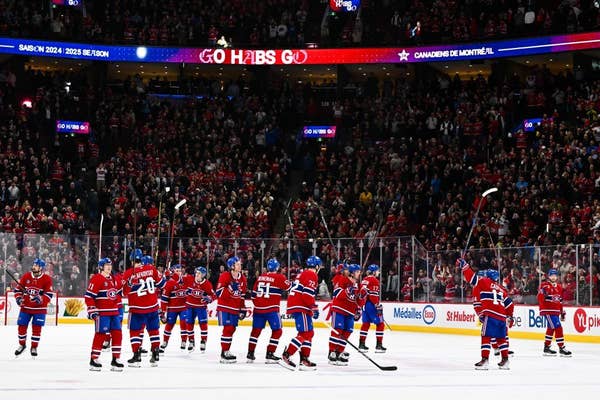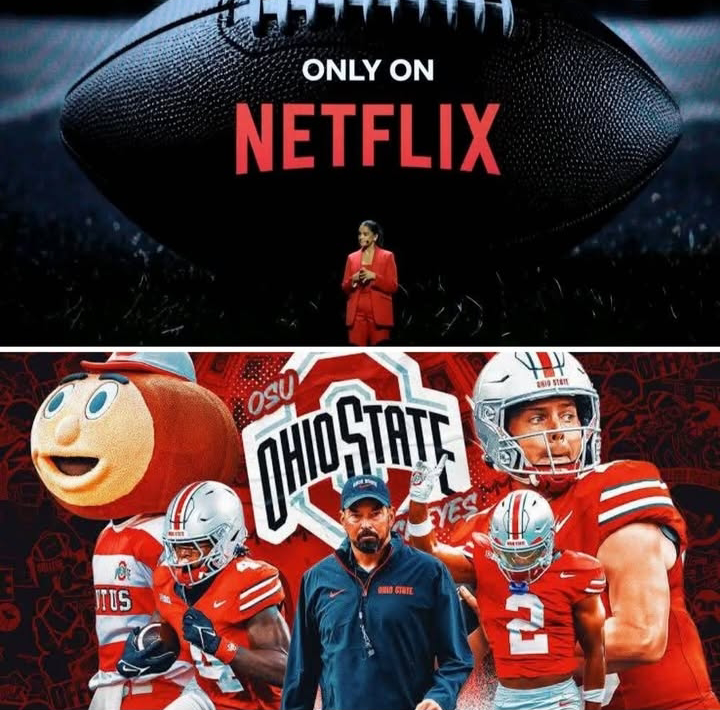In the world of professional hockey, the trade deadline is often seen as a make-or-break moment for teams on the cusp of a playoff run. For the Montreal Canadiens, however, General Manager Kent Hughes made headlines by not selling at the deadline—a decision that has sparked plenty of debate among fans, analysts, and rival teams alike. In this blog post, we delve into Hughes’ rationale behind his decision, examine the broader implications for the franchise, and explore what the future holds for a team that appears committed to long-term success over short-term gains.
A Different Kind of Deadline Strategy
Traditionally, trade deadlines are a time when teams with playoff aspirations look to bolster their rosters by acquiring veteran talent, while rebuilding franchises often shed high-value contracts to create cap space for the future. For years, the pressure has been on to “win now” at the deadline, and many GMs have found themselves in the crossfire when opting for a more measured approach. Kent Hughes, however, has chosen a markedly different path with Montreal.
At the deadline, rumors swirled about potential blockbuster moves, yet Hughes remained steadfast. “I believe in our core and our vision for the future,” Hughes explained in a recent press conference. “Selling off pieces at this stage wouldn’t serve our long-term plan. We’re building a foundation that’s meant to last.” His comments resonated with a portion of the fan base that has grown tired of knee-jerk reactions and short-sighted moves, preferring instead a steady, principled approach to team-building.
The Long-Term Vision
Hughes’ decision not to sell at the deadline is rooted in a belief that the Canadiens are in the midst of a rebuilding phase—a phase that requires patience, consistency, and a commitment to a long-term strategy. Unlike teams that are willing to trade away established players to chase immediate playoff success, Hughes has taken a different approach. He believes that preserving the team’s core, along with its young talent and promising prospects, is the best way to build a contender that can compete at the highest level year after year.
“Some might say we’re not doing enough to make a playoff push, but what we’re really doing is investing in our future,” Hughes stated. This perspective reflects a broader trend in the NHL, where front offices are increasingly focused on asset management and draft capital. Rather than chasing short-term wins, the Canadiens’ management is laying the groundwork for sustained excellence. By not selling at the deadline, Hughes signals that he’s willing to endure a few lean years if it means setting the stage for long-term success.
A Commitment to Roster Stability
One of the key arguments Hughes has made for his decision is the importance of roster stability. The Canadiens have seen significant turnover in recent seasons, and while a shake-up can sometimes yield immediate benefits, it often comes at the cost of team chemistry and long-term continuity. Hughes’ philosophy centers on the idea that building a successful team isn’t just about acquiring talent—it’s about creating a cohesive unit that can grow together.
“We’re not in the business of quick fixes,” Hughes said. “We want to build something that lasts. That means keeping our core intact, nurturing young talent, and making strategic moves that enhance the team over time.” By avoiding major trades, Hughes is signaling his commitment to stability. The approach may not produce the flash of a high-profile trade deadline move, but it fosters an environment where players can develop their skills and work together towards a common goal.
Responding to Criticism
Not everyone has embraced Hughes’ cautious approach. Critics argue that by not trading at the deadline, the Canadiens may be missing an opportunity to make a bold statement and improve their chances of immediate postseason success. Some fans are frustrated, feeling that the organization isn’t taking advantage of the market to secure veteran help that could be the missing piece in a deep playoff run.
In response, Hughes has remained resolute. “I understand the urgency that comes with being in a competitive league,” he said. “But I also understand that there’s no substitute for long-term planning. We’re not just building for tomorrow; we’re building for the next five, even the next ten years.” His comments have served to calm some of the immediate backlash, suggesting that while the team may not be a sure bet this season, the groundwork is being laid for a bright future.
What Comes Next for the Canadiens?
Looking ahead, the Canadiens’ strategy will continue to focus on internal development and calculated moves that align with their long-term vision. Here are some of the key areas that will likely shape the team’s future:
1. Player Development and Youth Integration
The Canadiens have a number of promising young players in their system, and a significant part of Hughes’ plan involves accelerating their development. With a focus on improving team chemistry and on-ice performance, the organization is expected to invest in training, coaching, and other resources that help these young talents reach their full potential. The hope is that by nurturing this talent, Montreal can eventually field a competitive team capable of making deep playoff runs.
2. Strategic Free Agency and Cap Management
Without resorting to last-minute trades, the Canadiens will likely turn to free agency and smart cap management in the off-season. Hughes has indicated that the organization is in a position to be strategic in the free-agent market, targeting players who not only fit the team’s culture but also complement its long-term strategy. This approach will require patience, but it also allows the Canadiens to avoid the pitfalls of overpaying for short-term fixes.
3. A Measured Approach to Future Trades
While the recent trade deadline passed without major deals, that doesn’t mean the Canadiens are averse to trading altogether. Instead, Hughes is advocating for a measured approach—one that considers the long-term implications of any move. Future trades, if they occur, will likely be designed to enhance the team’s core without sacrificing the potential for growth. This balanced strategy could serve as a blueprint for other organizations looking to build sustainable success.
4. Building a Culture of Resilience
Perhaps the most intangible yet vital aspect of the Canadiens’ plan is the development of a resilient, forward-thinking culture. In a league where fortunes can change in an instant, fostering an environment that values hard work, accountability, and long-term vision is essential. Hughes has been clear that the organization’s success depends not just on the talent on the ice, but also on the collective mindset of the team. This cultural shift is expected to pay dividends in the years to come.
The Broader Implications for the NHL
The Canadiens’ decision not to sell at the trade deadline—and the philosophy behind it—could have broader implications for how NHL teams approach rebuilding and team management. In recent years, there has been an increasing emphasis on asset management, draft capital, and long-term strategy. As the league evolves, teams may find that the old model of aggressive, deadline-driven moves is no longer the optimal path to sustained success.
Kent Hughes’ approach is a case study in patience and strategic foresight. It challenges conventional wisdom and underscores the idea that success in the NHL is not just about immediate results but also about building a foundation that can support long-term competitiveness. While the immediate fallout may be met with criticism from some quarters, history has shown that a well-planned rebuild can yield results that endure far beyond a single season.
Conclusion
In a season defined by its unpredictability and high stakes, Canadiens GM Kent Hughes’ decision not to sell at the NHL trade deadline has sparked a robust conversation about short-term gains versus long-term vision. While some may criticize the approach for potentially sacrificing immediate playoff success, Hughes’ unwavering commitment to stability, player development, and strategic planning signals that the Canadiens are focused on building a legacy that will endure.
As the team navigates the remainder of the season and looks ahead to future free agency and potential trades, the emphasis will remain on cultivating a culture of resilience and continuity. For fans, this means a season of ups and downs, but also the promise of a brighter future built on a solid foundation. In the ever-evolving landscape of the NHL, the Canadiens’ approach may well serve as a model for sustainable success—one that values patience and strategic insight over short-lived, headline-grabbing moves.
Ultimately, while the trade deadline may have passed without dramatic changes, the Canadiens’ journey is far from over. The decisions made now will shape the franchise for years to come, and for GM Kent Hughes, the focus remains clear: build for the future, and let success follow in due course.






Leave a Reply